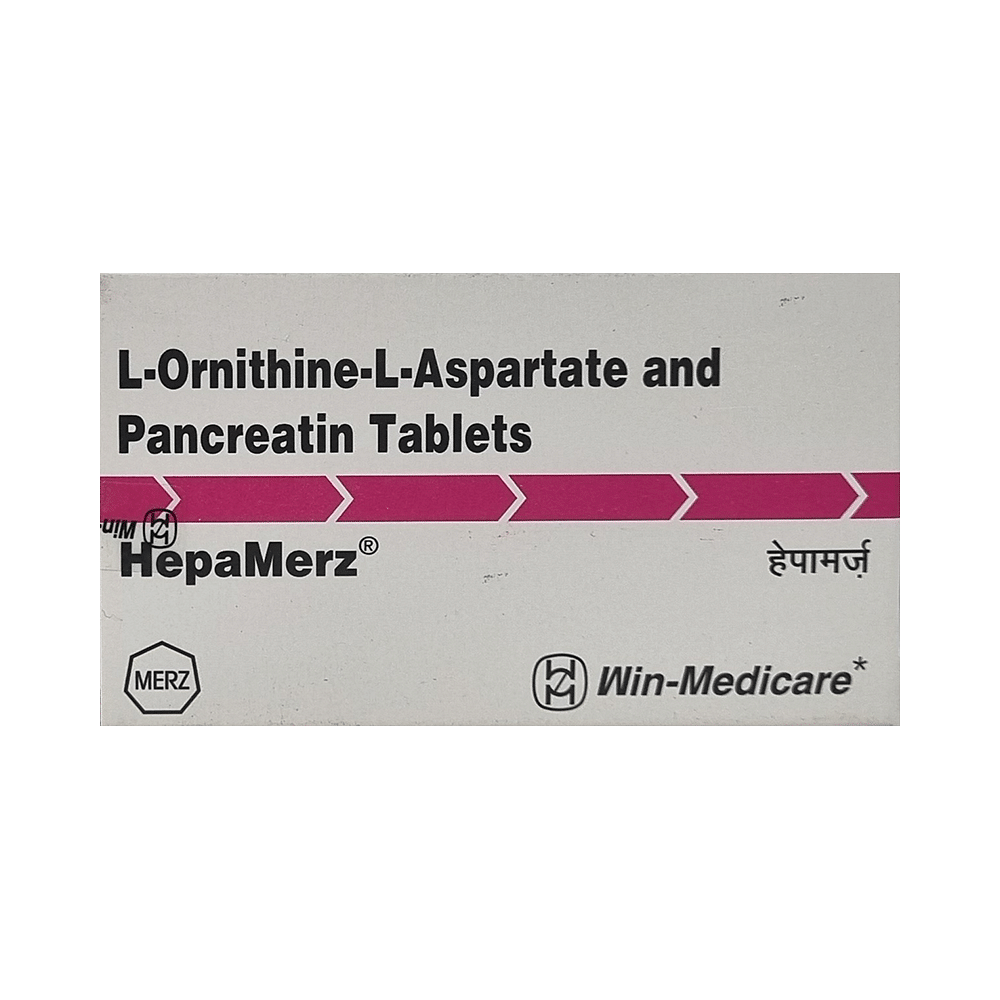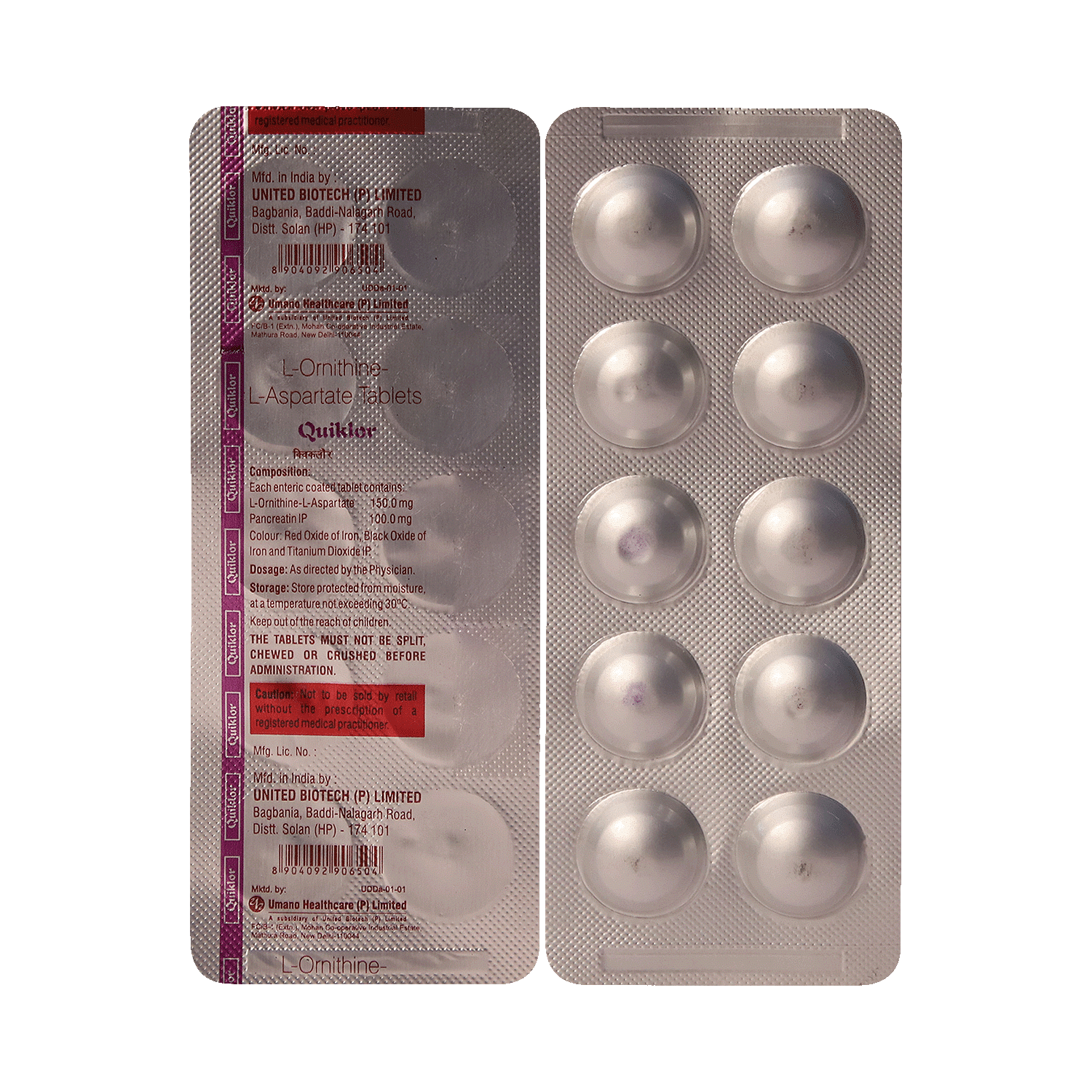
Levcure 150mg/100mg Tablet
Manufacturer
Avyukt Pharmaceuticals
Salt Composition
L-Ornithine L-Aspartate (150mg) + Pancreatin (100mg)
Key Information
Short Description
Levcure 150mg/100mg Tablet is a combination medicine used in the treatment of indigestion. It works by improving the function of the digestive system.
Dosage Form
Tablet
Introduction
Levcure 150mg/100mg Tablet is taken with food in a dose and duration as advised by the doctor. The dose you are given will depend on your condition and how you respond to the medicine. You should keep taking this medicine for as long as your doctor recommends. If you stop treatment too early your symptoms may come back and your condition may worsen. Let your healthcare team know about all other medications you are taking as some may affect or be affected by this medicine. The most common side effects are nausea, stomach pain, bloating, diarrhea and constipation. Most of these are temporary and usually resolve with time. Contact your doctor straight away if you are at all concerned about any of these side effects. To overcome constipation, you should add fiber-rich foods in your diet and stay hydrated. Before you start taking this medicine it is important to inform your doctor if you are suffering from liver or kidney disease. Pregnant or breastfeeding women should also consult their doctor. Lifestyle modifications like having a fiber-rich diet, increase fluid intake and regular exercise can help you to get better results.
Directions for Use
Take this medicine in the dose and duration as advised by your doctor. Swallow it as a whole. Do not chew, crush or break it. Levcure 150mg/100mg Tablet is to be taken with food.
Safety Information
Side Effects
No common side effects listed
Alcohol Warning
It is not known whether it is safe to consume alcohol with Levcure 150mg/100mg Tablet. Please consult your doctor.
Breastfeeding Warning
Information regarding the use of Levcure 150mg/100mg Tablet during breastfeeding is not available. Please consult your doctor.
Pregnancy Warning
Levcure 150mg/100mg Tablet may be unsafe to use during pregnancy. Although there are limited studies in humans, animal studies have shown harmful effects on the developing baby. Your doctor will weigh the benefits and any potential risks before prescribing it to you. Please consult your doctor.
How it works
Levcure 150mg/100mg Tablet is a combination of two amino acids (L-Ornithine L-Aspartate) and a digestive enzyme (Pancreatin). L-Ornithine works by reducing blood ammonia levels. This helps the diseased liver carry out its function smoothly. L-Aspartate works by generating energy and helping in regeneration of damaged liver cells. Pancreatin aids in digestion of food.
Quick Tips
Take it during or immediately after a meal or a snack as per your doctor’s advice and drink plenty of water along with it. Inform your doctor if you experience severe or long-lasting abdominal pain, persistent vomiting and signs of dehydration like dark colored and strong-smelling urine and a low frequency of urination. Inform you doctor if you are pregnant, planning to conceive or breastfeeding. It can cause mouth irritation. Swallow the capsules completely. Don't chew, crush or hold it in your mouth.
Related Medicines

HepaMerz Tablet

Hepamarin 150mg/100mg Tablet

Megrosi Plus 150mg/100mg Tablet

Sangliv PN 150mg/100mg Tablet

L & L Tablet

Hepascot 150mg/100mg Tablet

Hepagut Tablet

Quiklor 150mg/100mg Tablet

Silizom P 150mg/100mg Tablet

Jaunrid 150mg/100mg Tablet
Frequently asked questions
What is Levcure 150mg/100mg Tablet?
Levcure 150mg/100mg Tablet is used in the treatment of indigestion and dyspepsia.
Is Levcure 150mg/100mg Tablet safe to use?
Levcure 150mg/100mg Tablet is generally considered safe for most patients. However, as with any medication, potential side effects may occur. These might include nausea, stomach pain, bloating, diarrhea, or constipation.
Can Levcure 150mg/100mg Tablet cause nausea and vomiting?
Yes, Levcure 150mg/100mg Tablet can potentially trigger nausea and vomiting. However, this side effect is usually mild or moderate. Consuming it with milk, food, or antacids may help mitigate its effects. Fatty or fried foods should be avoided along with the medication. In case of nausea, drinking water or other fluids in small, frequent sips is recommended. If persistent vomiting occurs and you experience signs of dehydration like dark urine color and reduced urination frequency, seek immediate medical attention. Do not take any additional medications without consulting your doctor.


